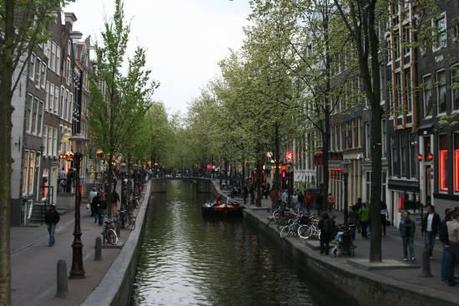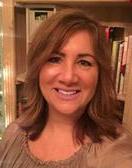
Red Light District, Amsterdam. Photo Credit: Katie Vogel
* * * * * *
/FICTOGRAPHY/ def. — The intersection of photography (submitted by readers) and fiction (written by me!).
The above photograph was submitted to me by one of my former students, Katie Wagner Vogel. This lovely shot is of the Red Light District in Amsterdam. Katie likes to travel, and has been to some very cool places. She was always a great addition to the classroom and was a member of our public relations club. Now, grown up and married, she is working as the Creative Director for Agora Financial in Baltimore. I appreciate her willingness to submit a photograph, and I can honestly say, I’ve never broached the subject of an STD before.
* * * * * *
RED LIGHT DOCTOR
Dr. Westhuizen began to pack up his bag. He knew what it was—had seen it many times before, and had to break the news many times as well—so he was not at all shocked to see the manifestation of the infection, red and raised, on parts of her body that typically remain hidden, unless of course, one is in that particular, legal (in Amsterdam) line of work.
“It is contagious,” he remarked. “I suggest you take great care with it or it could spread to others you come in contact with.”
He closed his kit, and looked around the room. From the outside, all looked well, yet on the inside, in the musty room with beat up floors and ragged curtains, he was giving a patient news she didn’t want to hear.
“I was going to quit, you know,” she said, looking away from him and out the window as she buttoned up her pants. “Was going to give it all up. This is my punishment, you see.”
To that end, he offered no reply. He preferred to keep the discussion to medical terminology. He did not like to become involved in the emotions of people. It made the job that much more difficult.
“There is medication that can lessen the symptoms and can make it less likely to spread, but it remains, you see. Always there, even when it looks as if it is gone.” He did not like to give one too much false hope that it would be cured or go away in time.
He wrote the script and handed it to her. She looked as if she were barely twenty. He wondered if what she said was true—that she planned to leave it all behind, perhaps start new. There was a mysterious and unusual glamour to this line of work in this city, and it was the reason why he chose to set up his practice here, where he unequivocally delivered more bad news than good and saw things he wished he didn’t have to see. He knew he served a useful purpose. His job was to make their lives better. Some had nicknamed him the “Red Light Doctor.”
Dr. Westhuizen walked over to the door, grabbed the handle, and turned to see her sitting on the edge of the bed, tears in her eyes. Something in the manner of her posture left him unable to walk away.
“You will be okay,” he said, finding himself speaking words that were a-typical to his vocabulary. “It won’t always be bothersome like it is now. The medication will help you.”
“Johann will never understand,” she said.
Then the good doctor heard himself say something he had never said to any other patient—ever.
“If he loves you, he will understand. And, he will still love you.”
She looked up from where she was sitting, and gave him part of a smile.
“Thank you, Doctor,” she said. There was hope in those words, and Dr. Westhuizen walked back onto the street, off to visit another patient in need.

